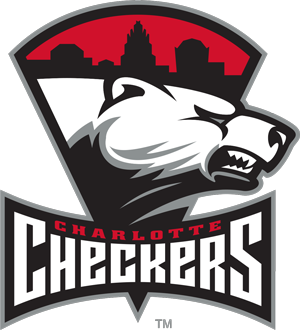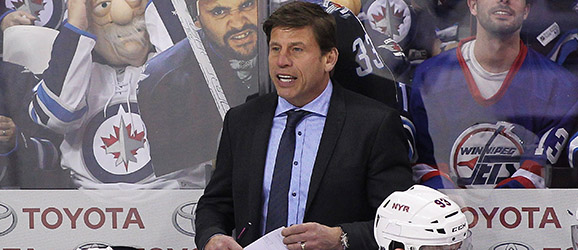For the third time in three years, the Checkers will head into the season with a new head coach.
And the new bench boss is a fairly recognizable one.
Ulf Samuelsson played in 1,080 NHL games over his career, manning the blue line for five different teams. Most notably, the 52-year-old began his career in Hartford alongside current Carolina General Manager Ron Francis before the duo was shipped to Pittsburgh, where they helped the Penguins capture back-to-back Stanley Cup championships.
Being able to reunite with his former teammate and some other familiar faces was a big plus for Samuelsson.
“There are some people that I have met over the years, some very nice people that I’ve been able to spend time with and get familiar with,” he said. “That has certainly helped with the transition that there are people who I really like and they’re working in this organization.”
Samuelsson has carved out a solid coaching resume over the last decade, including five seasons as an associate coach with the Phoenix Coyotes and, most recently, three years as an assistant coach with the New York Rangers.
While he proved to be formidable behind the bench in the NHL, the Checkers’ head coaching position was an opportunity he couldn’t pass up.
“I think it’s a very interesting opportunity for me to get involved with an organization that has a lot of young, good players already in the system and will be getting more over the next draft or so,” said Samuelsson. “I see a lot of high-end, young players coming that will turn quickly into competitive players so it can be a competitive product on the ice.”
This isn’t Samuelsson’s first head coaching gig – he spent two seasons with Modo of the Swedish Hockey League, a stint that he called “a very good experience for me” – but it will come with bit of an adjustment after having a more specific role with the Rangers.
“We worked together and everyone had their input, but at the end of the day I was in charge of the D in all aspects,” said Samuelsson. “I did a lot of defensive zone plays and structure, plus penalty kill, so I had a pretty full plate.
“Now, it’ll be more work but less details. As an assistant coach, you have time to dig in and digest and really look at the particulars of the game. As a head coach, you have to do that as well as manage people and make sure that everyone is doing what they’re supposed to.”
Another adjustment that will have to come for Samuelsson is getting used to the ins and outs of the AHL. As a player, he spent just half of his rookie season in the AHL, and as a coach he logged his first campaign as an assistant with the Hartford Wolf Pack in 2005-06 before moving on to the NHL. There are some big differences that stand out between the two leagues, but Samuelsson seems ready to take them on.
“Travel in the AHL is harder in some places and easier in some places,” said Samuelsson. “I’ve heard Charlotte is in the middle, maybe towards the harder side, but that’s just something that you have to deal with and prepare for. My first impressions of the Charlotte Checkers as an organization is that they are committed and want to do well and they will get a good product on the ice.”
Samuelsson follows Jeff Daniels and Mark Morris as the third coach in the Checkers’ AHL franchise history, and carries with him more NHL playing experience than either of his predecessors. Drawing from that will certainly help him in his new position, but he points to other factors as being key to the team’s success.
“I think it can certainly help to have a name with some experience behind it, but kids are so smart nowadays so you have to come up with individual and team gameplans to really gain their respect and get their attention,” said Samuelsson. “It’s a lot of hard work. The kids want to win, so if they see a game plan that they believe in they’re going to want to play hard for it.”
Having missed the playoffs in each of the last three seasons, the Checkers are entering the 2016-17 campaign aiming to turn that skid around. Eleven years into his coaching career, Samuelsson seems to possess the desire to win that could help do just that.
“Why I’m still in the game is the passion for the game,” said Samuelsson. “It’s not quite as fun as playing the game, but when I’m on the bench I’m competing. I think that, for me, is what drives me the most. The wins and losses are what get me going.”






